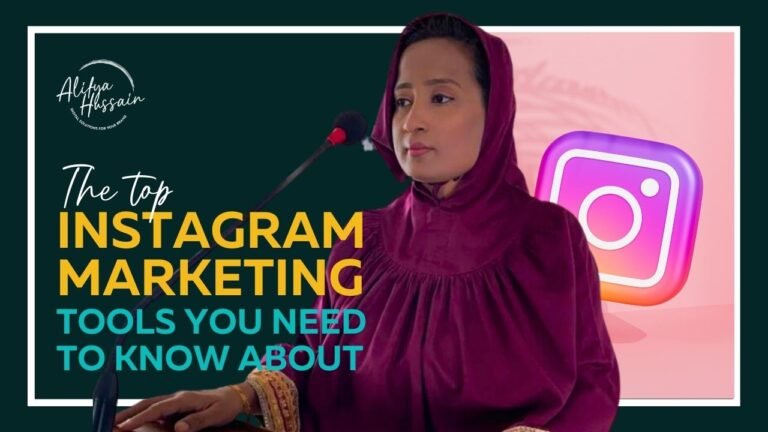Harnessing the Potential of Influencer Marketing
Introduction
In today’s digital age, traditional advertising alone may not be enough to capture the attention of your target audience. Consumers are increasingly turning to social media platforms and online content creators for recommendations and product information. This is where influencer marketing comes into play. By partnering with influencers who have a dedicated following and strong online presence, businesses can tap into a new realm of marketing opportunities. In this article, we will explore the potential of influencer marketing and provide valuable insights to help you harness its power.
Table of Contents
- Introduction
- What is Influencer Marketing?
- The Power of Influencer Marketing
- Building Trust and Credibility
- Expanding Reach and Visibility
- Driving Authentic Engagement
- Finding the Right Influencers
- Identifying Your Target Audience
- Evaluating Influencer Relevance and Authenticity
- Assessing Influencer Reach and Engagement
- Collaborating with Influencers
- Defining Campaign Objectives
- Crafting a Compelling Influencer Brief
- Setting Clear Expectations and Guidelines
- Measuring Success in Influencer Marketing
- Key Metrics to Track
- Analyzing the Impact of Influencer Campaigns
- Navigating FTC Guidelines and Disclosure
- Best Practices for Effective Influencer Marketing
- Authenticity and Transparency
- Long-Term Relationships
- Micro-Influencers and Niche Markets
- Case Studies: Successful Influencer Marketing Campaigns
- Example 1: Company X Boosts Sales with Influencer Partnerships
- Example 2: E-commerce Store Y Gains Brand Exposure through Influencer Collaborations
- The Future of Influencer Marketing

What is Influencer Marketing?
Influencer marketing is a form of collaboration between brands and influential individuals or content creators who have a significant following on social media platforms. These influencers, also known as online personalities or thought leaders, have the power to affect the purchasing decisions of their audience through their authentic and engaging content.
Unlike traditional advertising, influencer marketing focuses on building genuine relationships between the brand and the influencer, allowing for more organic and relatable promotion. By leveraging the trust and credibility established by influencers, brands can connect with their target audience on a deeper level and drive meaningful engagement.
The Power of Influencer Marketing
Building Trust and Credibility
One of the key benefits of influencer marketing is its ability to build trust and credibility with the target audience. Influencers have established themselves as experts or authorities in their respective niches, and their followers trust their recommendations and opinions. When an influencer promotes a product or service, their audience is more likely to perceive it as a genuine endorsement rather than a traditional advertisement.
Expanding Reach and Visibility
Influencers have a dedicated following that often extends beyond what traditional marketing channels can reach. By partnering with influencers, brands can tap into their existing audience and gain exposure to new potential customers. This expanded reach allows businesses to increase brand visibility, generate leads, and drive traffic to their website or social media channels.
Driving Authentic Engagement
Influencers have cultivated a community of engaged and loyal followers who actively participate in the content they create. By collaborating with influencers, brands can tap into this engaged audience and foster authentic conversations around their products or services. Influencer marketing campaigns often result in higher engagement rates compared to traditional advertising methods, as the content feels more relatable and personal.
Finding the Right Influencers
To harness the full potential of influencer marketing, it is crucial to find the right influencers who align with your brand values, target audience, and campaign objectives. Here are some steps to help you find the right influencers:
Identifying Your Target Audience
Before starting your search for influencers, it’s essential to clearly define your target audience. Understand their demographics, interests, and preferences to find influencers who have an audience that matches your target market. This alignment ensures that your message reaches the right people who are more likely to engage with your brand.
Evaluating Influencer Relevance and Authenticity
When considering influencers, evaluate their relevance to your industry or niche. Look for influencers who create content that aligns with your brand and whose values resonate with your target audience. Authenticity is key in influencer marketing, so ensure that the influencer’s content is genuine and not overly promotional.
Assessing Influencer Reach and Engagement
An influencer’s reach and engagement are crucial factors to consider. While the number of followers is important, it’s equally important to look at their engagement rates. High engagement indicates an active and involved audience. Evaluate metrics such as likes, comments, shares, and click-through rates to gauge the influencer’s ability to drive engagement and generate interest in your brand.
Collaborating with Influencers
Once you have identified suitable influencers, it’s time to collaborate and create impactful influencer marketing campaigns. Here are some key steps to follow:
Defining Campaign Objectives
Clearly define your campaign objectives and what you hope to achieve through influencer marketing. Whether it’s driving sales, increasing brand awareness, or promoting a new product, having specific goals will help you measure the success of your campaign accurately.
Crafting a Compelling Influencer Brief
Provide influencers with a detailed and compelling brief that outlines your campaign objectives, key messages, and any specific guidelines or requirements. Ensure that the brief allows room for creativity and personalization, as influencers are experts in understanding what resonates with their audience.
Setting Clear Expectations and Guidelines
Communicate your expectations clearly and establish guidelines for content creation, disclosure requirements, and any legal considerations. Maintain open and transparent communication with the influencers throughout the collaboration process to ensure alignment and avoid any misunderstandings.
Measuring Success in Influencer Marketing
Measuring the success of your influencer marketing campaigns is crucial to understanding their impact and optimizing future strategies. Here are some key metrics to track:
Key Metrics to Track
- Reach: Measure the total number of unique individuals exposed to your influencer’s content.
- Engagement: Track likes, comments, shares, and other relevant metrics to gauge audience engagement.
- Click-through Rate (CTR): Measure the number of clicks on links or call-to-action buttons included in the influencer’s content.
- Conversions: Track the number of conversions generated as a result of the influencer’s promotion, such as purchases, sign-ups, or downloads.
- Return on Investment (ROI): Calculate the ROI by comparing the revenue generated from the campaign to the total investment.
Analyzing the Impact of Influencer Campaigns
Regularly analyze the data collected from your influencer marketing campaigns to gain insights into their performance. Identify trends, patterns, and areas for improvement. Use these insights to refine your strategies and optimize future collaborations.
Navigating FTC Guidelines and Disclosure
When engaging in influencer marketing, it’s important to adhere to the Federal Trade Commission (FTC) guidelines. These guidelines require influencers to disclose any material connections with the brands they promote. Ensure that your influencers comply with these regulations by clearly disclosing their partnerships with your brand in their content.
Best Practices for Effective Influencer Marketing
To maximize the impact of your influencer marketing campaigns, consider the following best practices:
Authenticity and Transparency
Authenticity is the cornerstone of influencer marketing. Encourage influencers to create content that reflects their genuine experiences and opinions about your brand. Transparency is equally important, so ensure that influencers clearly disclose their partnership with your brand in their content.
Long-Term Relationships
Building long-term relationships with influencers can be beneficial for both parties. Continuously collaborating with the same influencers allows for the development of a deeper connection with their audience, leading to increased brand loyalty and recognition.
Micro-Influencers and Niche Markets
Consider working with micro-influencers who have a smaller but highly engaged following within a specific niche. These influencers often have a more targeted and dedicated audience, resulting in higher engagement rates and increased authenticity.
Case Studies: Successful Influencer Marketing Campaigns
Let’s examine two successful influencer marketing campaigns to understand their impact:
Example 1: Company X Boosts Sales with Influencer Partnerships
Company X, an online clothing retailer, partnered with fashion influencers on YouTube and Instagram. The influencers created stylish lookbooks and showcased Company X’s clothing, highlighting the quality and unique designs. This collaboration resulted in a significant increase in sales, as the influencers’ followers were inspired by the fashion-forward content and trusted their recommendations.
Example 2: E-commerce Store Y Gains Brand Exposure through Influencer Collaborations
E-commerce Store Y collaborated with beauty influencers who specialized in skincare. The influencers shared their skincare routines, featuring products from Store Y. This collaboration not only increased brand exposure but also helped establish Store Y as a trusted authority in the skincare industry. The influencer’s audience appreciated the genuine recommendations and were more likely to try the recommended products.
The Future of Influencer Marketing
As the digital landscape continues to evolve, influencer marketing is expected to play an even more significant role in brand promotion and customer acquisition. With the rise of new social media platforms and emerging influencer trends, businesses must adapt and stay ahead of the curve to leverage the full potential of influencer marketing.
Conclusion
Influencer marketing offers businesses a powerful way to connect with their target audience, build trust, and drive meaningful engagement. By harnessing the potential of influencer marketing and implementing effective strategies, brands can amplify their reach, increase brand visibility, and maximize their return on investment. To take your influencer marketing campaigns to the next level, contact Alifya Hussain, an expert in influencer marketing strategies. Don’t miss out on the incredible opportunities that influencer marketing can bring to your business.




